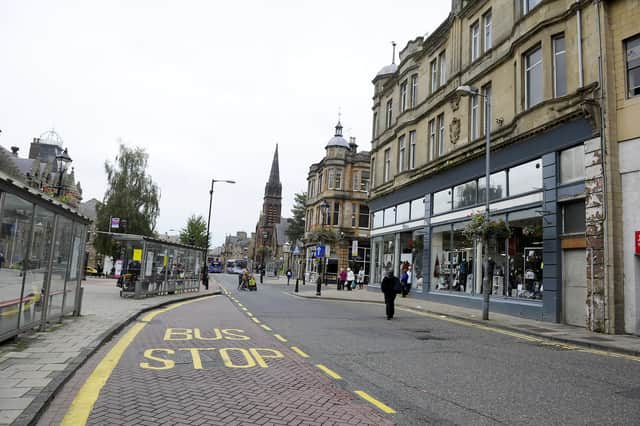Communities key to future of city centres - Phil Prentice


In the last 50 or 60 years, we have hollowed the life out of town centres and created a doughnut effect. The retail predominance of the 1980s and 90s put a premium on town centre space, shifting less valuable residential uses to the edge. An estimated 40 per cent of buildings in Scottish town centres are now lying empty, most above shop frontages. High streets have suffered from reduced local economic consumption and a lack of community.
It is a similar story in city centres. Glasgow and Edinburgh have the least densely populated city centres in Europe. If you look above the shops and restaurants at night in Europe, you can see people living in every window. Many have balconies and shared courtyards and green spaces that help combat loneliness.
Advertisement
Hide AdAdvertisement
Hide AdOur 2014 Town Centre Action Plan explored how to bring back vacant and redundant space into productive use for housing, a possible solution for our changing demographic and to help tackle inclusion.
A market failure still exists as the system still supports unsustainable sprawl. Scotland’s new Town Centre Action Plan, to be launched in April, delivers a more holistic approach to placemaking. The focus is on prosperous, vibrant and environmentally sustainable 20-minute neighbourhoods. The concept is a multi-disciplinary approach to creating more liveable communities, with input from sectors as diverse as public health and transport.
The Plan aspires to deliver homes fit all for the 21st century. Much of the ageing generation stay on in large family homes that would be better for young, growing families because there isn’t suitable alternative housing available. In a city centre development, the elderly could downsize to large, future-proofed apartments with dining and recreation facilities as well as access to local services, such as GP surgeries and a children’s nursery where both the old and young benefit from inter-generational socialising.
There is also considerable demand from younger generations for single unit homes as more people want to live on their own. There are many empty homes in our town centres that could be upgraded and brought back into use, to serve this need. However, we need to ensure that the town centre is an attractive place to live.
While there are many positives to the sudden shift towards working from home as an outcome of the pandemic, cities have and will suffer from the lack of footfall. The answer to this is re-population of city centres at scale, with housing that is sustainable, pandemic-proof and meets demographic needs with a good mix of private and social housing. The best chance of city-centre coffee shops and local independent businesses thriving is for people to move back to into the city.
This approach is increasingly met with interest from institutional investors. Rather than quick, high-risk gains, this model will see patient capital investment over 40-50 years. Encouragingly, the new Planning Framework for Scotland seeks to minimise edge of town or sprawl development. This needs to be matched with a widespread shift in mindsets, as investors need the confidence that they will able to zone whole streets to develop at scale.
The future of Scotland’s towns and city centres lies in the place principle and a holistic approach that encompasses community wellbeing, the environment and local economies. Phil Prentice will be chairing the Scottish Empty Homes Conference on the 22nd March, for tickets please see link.
Phil Prentice, Chief Officer, Scotland’s Towns Partnership On behalf of the Scottish Empty Homes Partnership
Comments
Want to join the conversation? Please or to comment on this article.